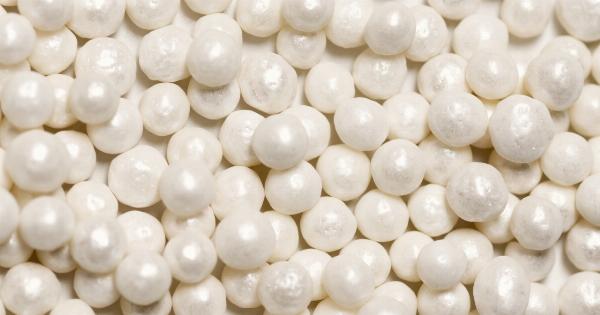Fiber is an essential nutrient that helps maintain a healthy digestive system and overall wellness. According to research, fiber consumption has also been linked to longevity.
In this article, we will discuss the various benefits of fiber consumption, the recommended daily intake, and how it contributes to longevity.
What is Fiber?
Fiber is a type of carbohydrate that the body cannot digest. There are two types of fibers: soluble and insoluble. Soluble fiber dissolves in water and forms a gel-like substance that slows down the digestive process.
Insoluble fiber, on the other hand, does not dissolve in water and helps regulate bowel movements.
Benefits of Fiber Consumption
Fiber provides several benefits for overall health. These include:.
- Lowering Cholesterol Levels – Studies have shown that consuming fiber can lower LDL (“bad”) cholesterol levels, which can reduce the risk of heart disease.
- Regulating Blood Sugar – Soluble fiber slows down the digestive process, which can help regulate blood sugar levels and prevent spikes and crashes.
- Preventing Constipation – Insoluble fiber adds bulk to stool, which can make it easier to pass through the intestines and prevent constipation.
- Promoting Weight Loss – Fiber makes you feel full for longer periods, which can reduce overall calorie intake and promote weight loss.
- Reducing Inflammation – Fiber can help reduce inflammation in the body, which can prevent chronic diseases such as cancer, heart disease, and diabetes.
Recommended Daily Intake
The recommended daily intake of fiber varies depending on age, sex, and overall health. The general recommendation for adults is to consume between 25-30 grams of fiber per day.
However, the average American only consumes around 15 grams per day, which is below the recommended amount.
Fiber and Longevity
Studies have shown that fiber consumption can increase lifespan and reduce the risk of chronic diseases.
One study conducted in the UK found that individuals who consumed more fiber had a 15-30% lower risk of premature death compared to those who consumed less fiber.
Another study conducted in the US found that individuals who consumed a high-fiber diet had a lower risk of death from all causes, including cardiovascular disease and cancer.
Fiber consumption can also help reduce inflammation in the body, which has been linked to several chronic diseases. By reducing inflammation, fiber can help prevent chronic conditions and promote longevity.
Foods High in Fiber
Fiber can be found in a variety of foods, including:.
- Fruits – apples, bananas, oranges, berries
- Veggies – broccoli, carrots, spinach, sweet potatoes
- Whole Grains – oats, wheat, barley, quinoa
- Legumes – beans, lentils, chickpeas
- Nuts and Seeds – almonds, chia seeds, flaxseeds, peanuts
Conclusion
Fiber is an essential nutrient that provides several benefits for overall health, including longevity.
Consuming a high-fiber diet can help lower cholesterol levels, regulate blood sugar, prevent constipation, promote weight loss, and reduce inflammation in the body. The recommended daily intake of fiber is between 25-30 grams. By incorporating fiber-rich foods into your diet, you can promote overall wellness and longevity.




























